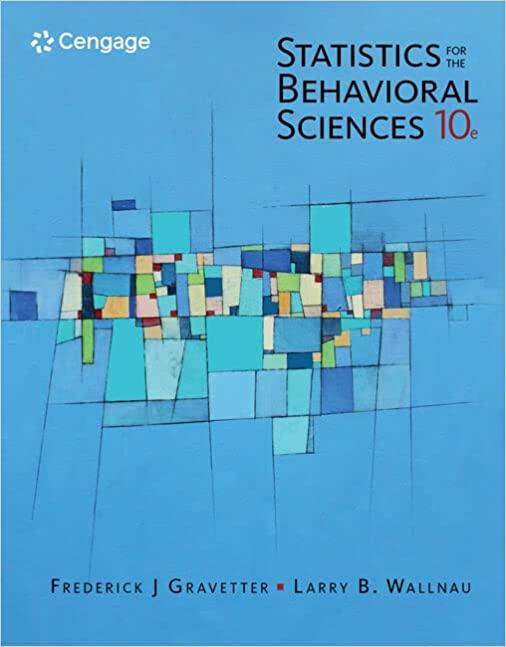Suppose that the researcher from the previous problem repeated the study of married couples initials using twice
Question:
Suppose that the researcher from the previous problem repeated the study of married couples’ initials using twice as many participants and obtaining observed frequencies that exactly double the original values.
The resulting data are as follows:

a. Use a chi-square test to determine whether the number of couples with the same last initial is significantly different that would be expected if couples were matched randomly. Test with α = .05.
b. You should find that the data lead to rejecting the null hypothesis. However, in problem 5 the decision was fail to reject. How do you explain the fact that the two samples have the same proportions but lead to different conclusions?
Step by Step Answer:

Statistics For The Behavioral Sciences
ISBN: 9781305504912
10th Edition
Authors: Frederick J Gravetter, Larry B. Wallnau






